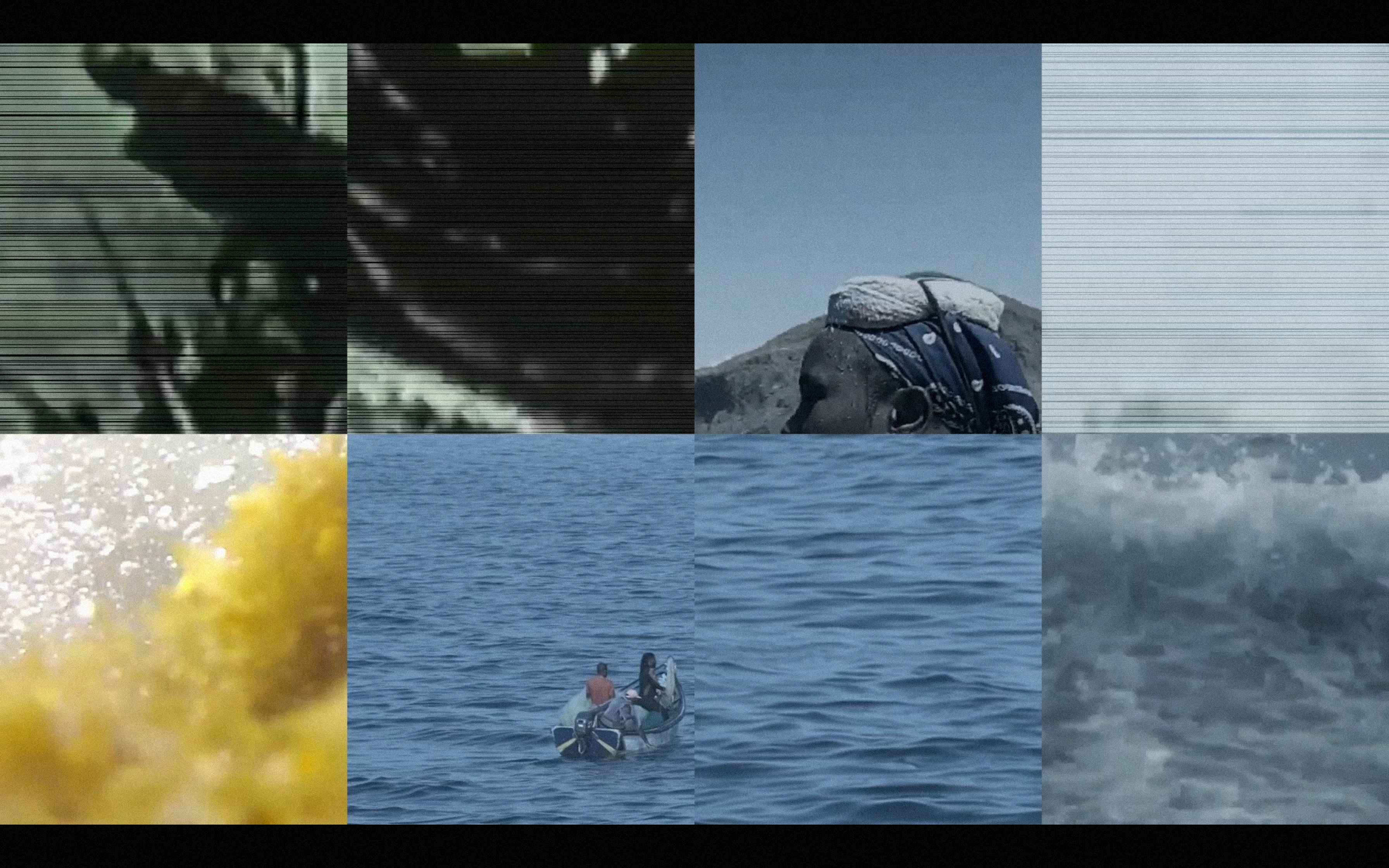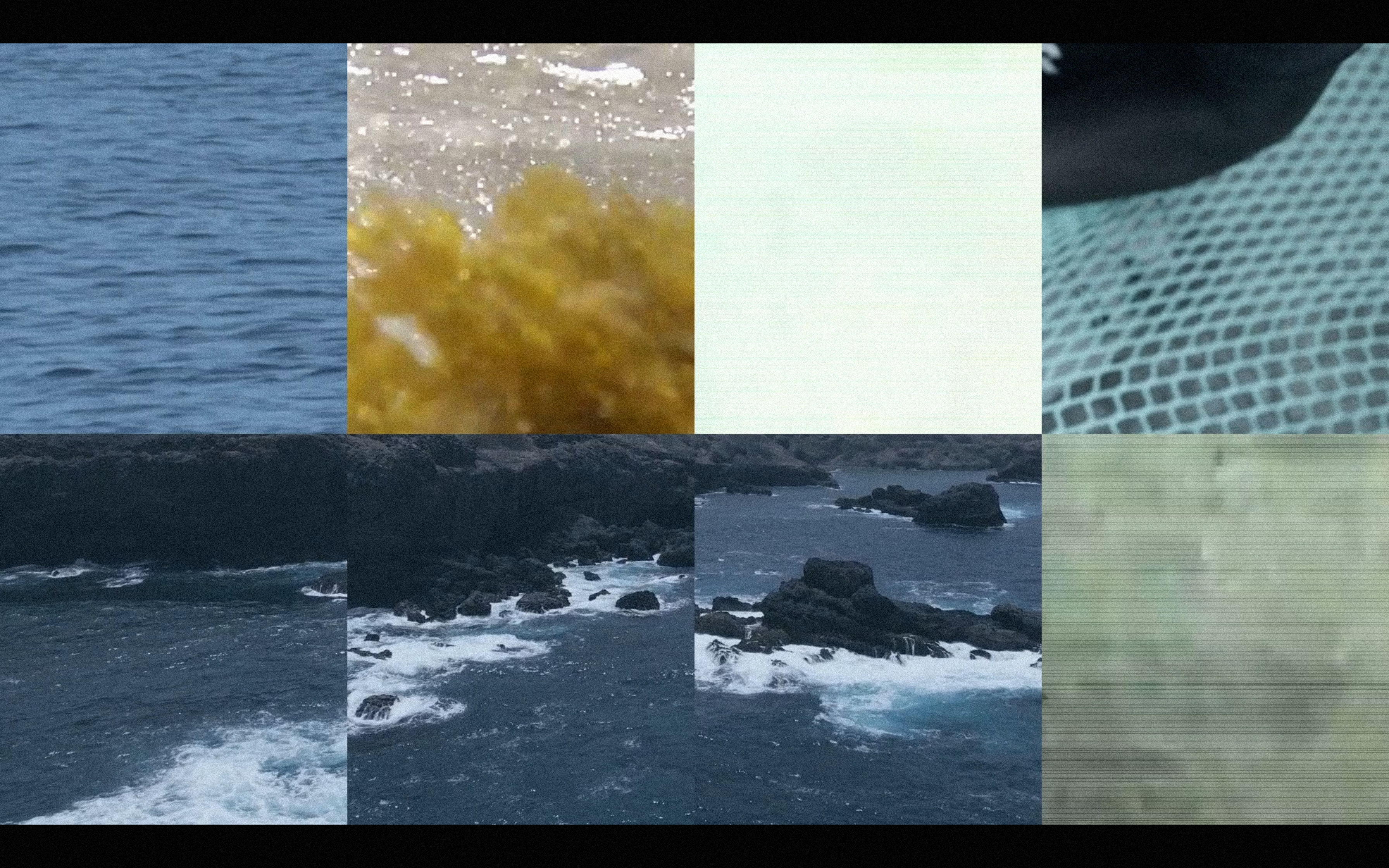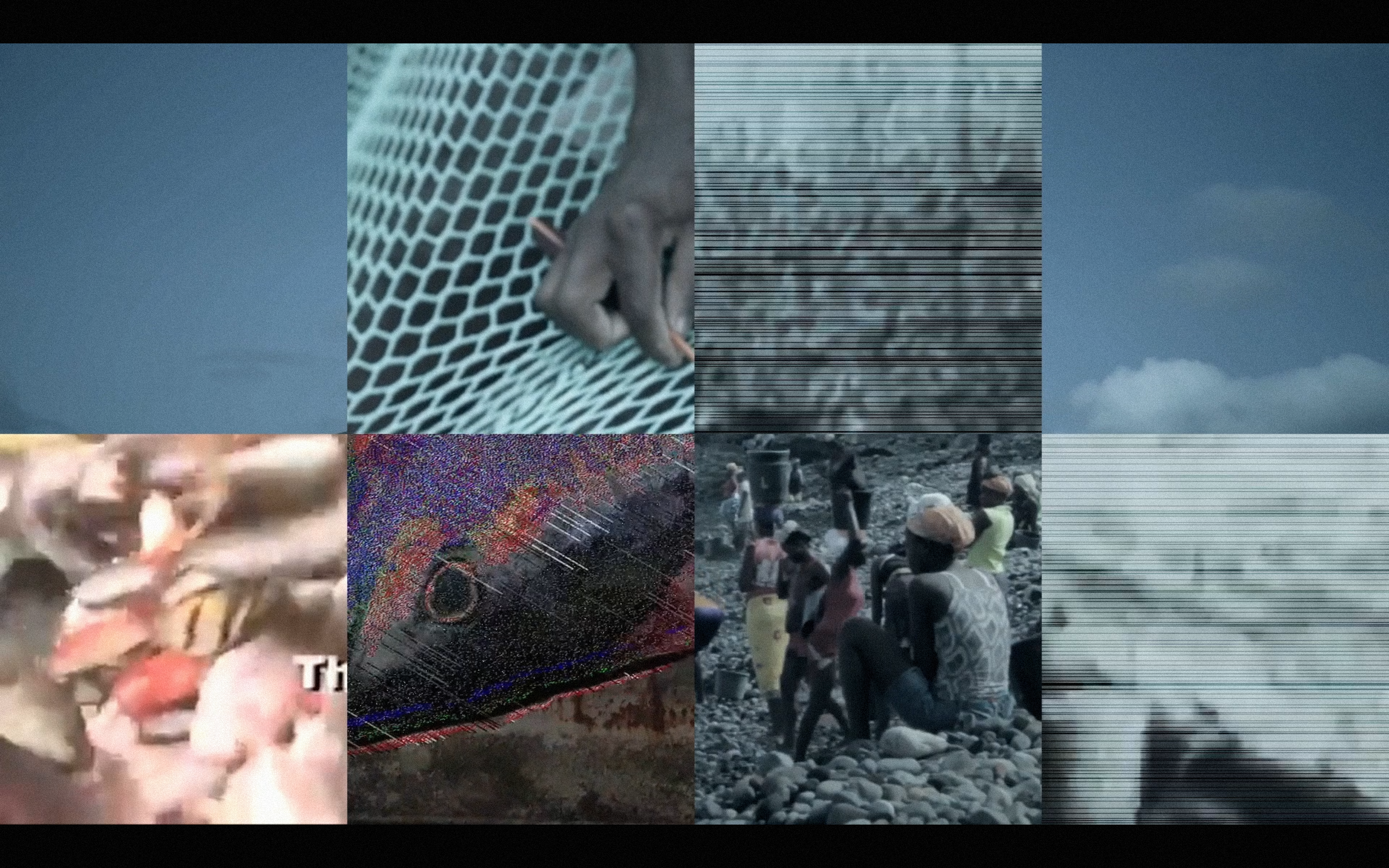Blue Womb reflects on the ocean as both a site of trauma and of possibility—yet historically marked by colonial occupation, extractive industries, pollution, and geopolitical neglect. It asks: how can we heal from oceanic trauma, and reimagine the sea as a space of dreams and futures rather than exploitation and dispossession? In Cabo Verde, despite an ocean territory fourteen times larger than its landmass, the sea remains marginal in livelihood and imagination. Colonial food systems and inadequate policies led to recurrent famines with devastating human tolls, sometimes wiping out half the population. The ocean was never positioned as an alternative. This project explores the Atlantic as an ecological, economic, and aesthetic space, questioning colonial continuities of marine extraction on Africa’s west coast and the politics of food that shape Cabo Verdean history.
César Schofield Cardoso, Blue Womb: There Are Many Fishing Vessels, 2023, 4 min
César Schofield Cardoso is a visual artist based in Praia, Cabo Verde. He works across cinema, photography, video art, and web projects. He co-wrote the documentary film Omi Nobu (2023), awarded the Étalon D’Or at FESPACO in 2023, and wrote and directed the short film Roots (2010), which won the Public Award at the Cabo Verde International Film Festival in 2010. Schofield Cardoso curated the multimedia projects The Intense Now (2021) and Vocal Streets, (2022) and co-edited the book Atlantica: Contemporary Art from Cabo Verde, Guinea-Bissau, São Tomé and Principe, and their Diasporas (Hangar Books, 2020). His current work focuses on contemporary issues in Cabo Verde, a small African country that is highly vulnerable to environmental, social, political, and economic factors. Schofield Cardoso explores digital tools and the web space as a channel, language, and metaphor for social and political issues. He co-created Storia na Lugar, a project that uses a storytelling approach to examine socio-spatial dynamics, addressing socio-spatial relationships and practices claiming the right to the city.


